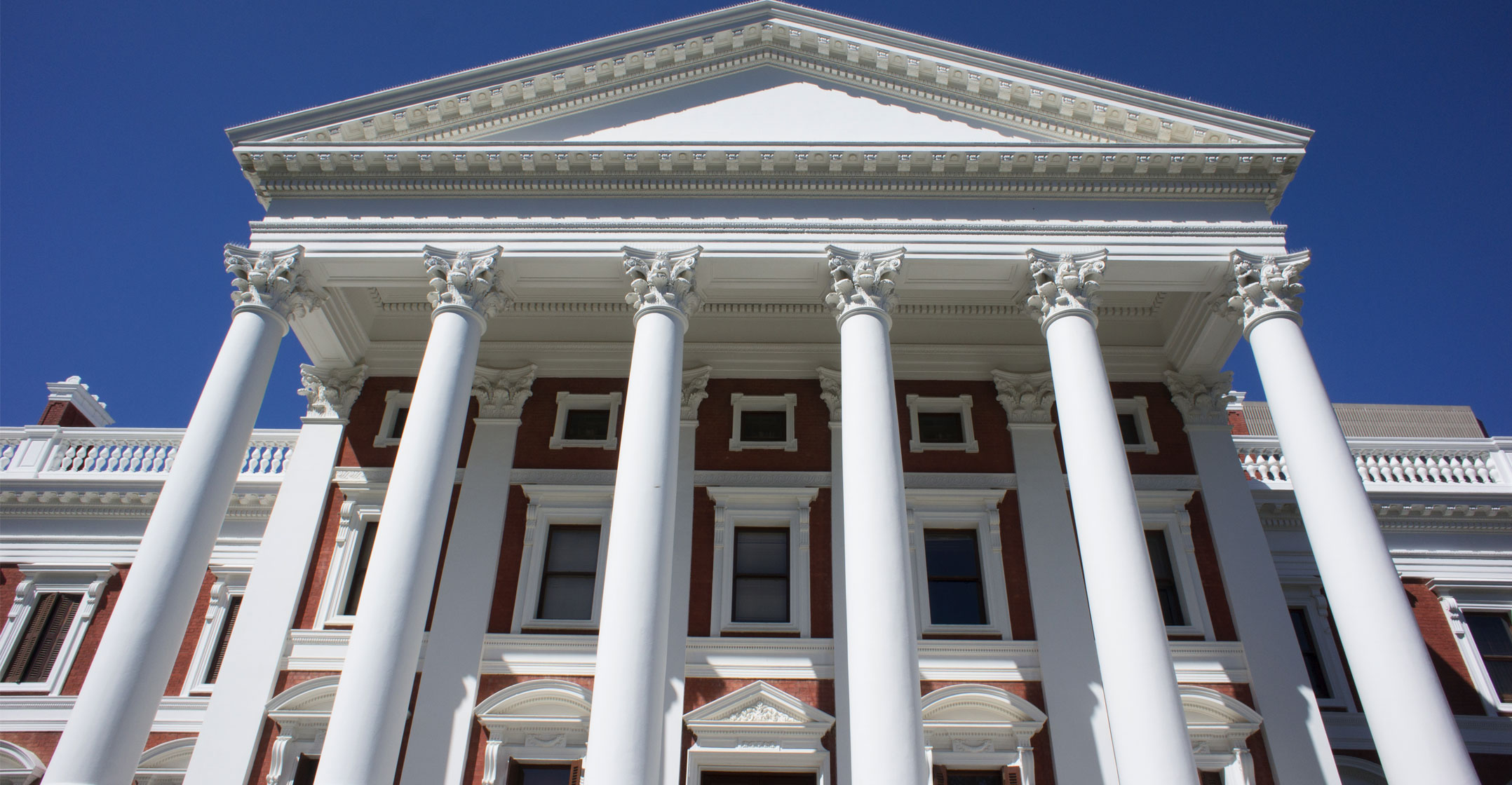
Parliament has published rules for virtual meetings of the national assembly and the national council of provinces (NCOP), and their committees.
This follows last week’s announcement that parliament will resume its business with immediate effect, after the cancellation of the leave period for MPs.
In March, the programme of parliament’s two houses was suspended, as a precautionary measure to curb Covid-19 by drastically limiting the numbers of people at the precincts in Cape Town and at off-site parliamentary activities.
In a statement, parliament said in virtual meetings MPs will have the same powers, privileges and immunities as they ordinarily have in parliamentary proceedings. Quorum requirements will be determined by the constitution and the rules.
“Current rules on order in public meetings and in debates will apply, where relevant. The presiding officer of a house or the chair of a committee will have all the powers in virtual meetings as provided for in existing rules.
“In its virtual meeting rules, the national assembly specifies that members who have accessed the virtual meeting through the secure link sent to their e-mail address will be deemed present for the purposes of establishing a quorum, taking a decision or voting on a matter,” the rules state.
Voting
For virtual meetings, members will also be entitled to cast their votes either electronically, by voice or by having their vote recorded by their whips.
The procedure to be followed will be predetermined and directives will be announced in the meeting by the presiding officer or committee chair.
“Only members who are present when a vote is called will be allowed to vote and the results of a vote will be announced and, where possible, the names of members and how they voted will be recorded in the minutes of proceedings. Members must ensure that their votes are correctly recorded.”
 In addition, public participation and access to virtual proceedings must be made possible in a manner that is consistent with a participatory and representative democracy. It stated that virtual meetings must be live-streamed, wherever possible.
In addition, public participation and access to virtual proceedings must be made possible in a manner that is consistent with a participatory and representative democracy. It stated that virtual meetings must be live-streamed, wherever possible.
The secretary to parliament, together with authorised officials and technical teams, is responsible for providing support to facilitate virtual meetings of the national assembly.
This includes technical support, maintaining minutes and records of proceedings, and maintaining a system capable of verifying votes cast electronically or manually.
Political parties must also provide a signed copy of votes cast by their members within an agreed time frame to ensure verification of results. This record may be submitted electronically.
The NCOP’s rules for virtual meetings include house sittings, committee meetings, voting by permanent delegates, briefings of provincial legislatures by permanent delegates on matters affecting provinces, select committees’ consideration of mandates or matters affecting provinces and facilitation of public involvement on matters before select committees.
“All house sittings and committee meetings will be in accordance with the NCOP’s programme. This programme will be sufficient notice of house sittings. For meetings of the NCOP’s select committees, committee chairpersons will be responsible for issuing meeting notices. Documents relating to committee meetings and house sittings will be distributed by any electronic means to which members have access.”
Public involvement
In house sittings, the secretary of the NCOP will maintain a system capable of verifying votes of delegates, cast either electronically or by voice.
In select committee meetings, this responsibility will rest with officers responsible for supporting the committees. There must also be facilitation of public involvement on matters before select committees by electronic means, which these committees will determine.
The rules also noted that departments will brief select committees by electronic means, which committees will determine.
Where matters affect provinces, members of the relevant committees of provincial legislatures may access select committee briefings from departments or other entities.
Select committee chairs must inform provincial legislatures, other entities or members of the public of the date and time of these meetings, at least three days beforehand, or within a reasonable time.
The place of the briefings will be deemed to be the NCOP and rules of the NCOP will apply.
If relevant committees of provincial legislatures could not access such briefings, the rules noted that NCOP permanent delegates will have an opportunity to brief their provincial legislatures.
“The place of these briefings will be deemed to be the provincial legislatures and the rules of the particular provincial legislature will apply. The provincial legislature must also maintain minutes and records of proceedings, be responsible for technical support at its site and co-ordination of the meeting.” — SANews




